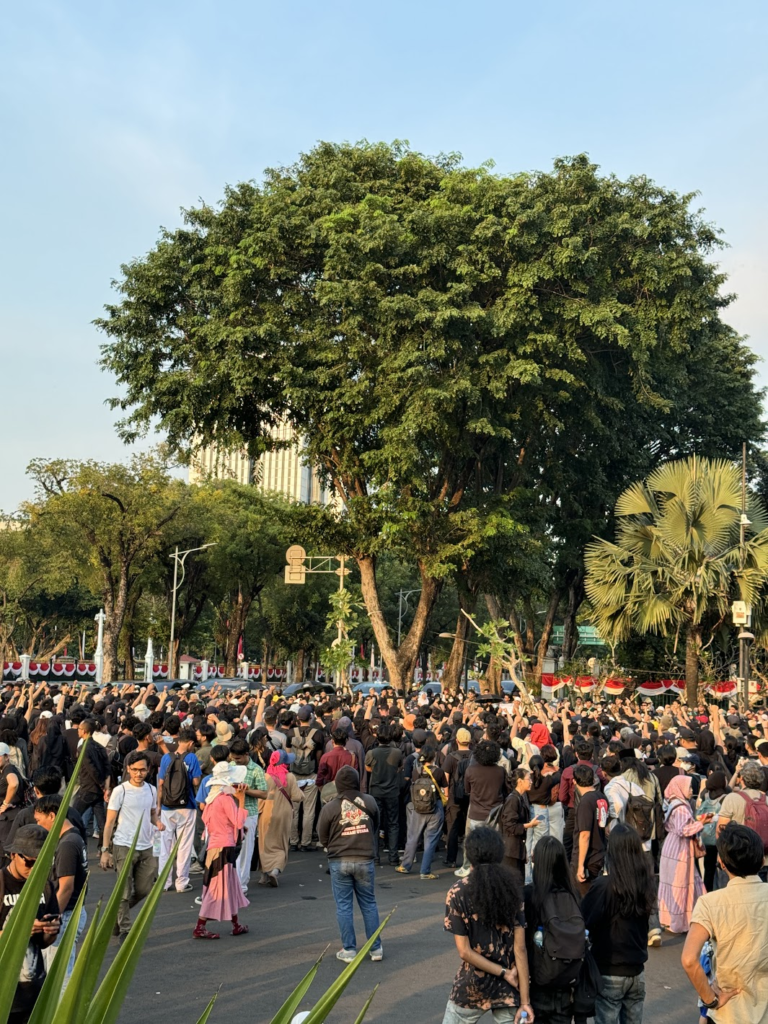Recently, I finished reading Thomas More’s Utopia. To be honest, the language felt ancient—almost like parsing ejaan djadoel —but the core ideas were still fascinating. More coined the term “Utopia” from the Greek words ou (οὐ), meaning “no” or “not,” and topos (τόπος), meaning “place” or “land.” Literally translated as “no-place,” the concept later evolved to describe an idealized society, largely because More depicts an imaginary island where social, political, and legal frameworks appear nearly perfect—especially compared to 16th-century Europe.

The Satirical Lens of Utopia
Despite modern readers associating “utopia” with a perfect world, Thomas More wrote his work as a product of satire. As a devout Catholic—he was later canonized—More embed the text with moral and philosophical critiques. Yet certain aspects strike us today as surprisingly progressive or even “communistic” for the era. For instance, Utopians hold property in common, eliminating private ownership to discourage greed. They also focus on the common good over individual wealth, a notion that parallels some modern socialist or communist principles.

However, Utopia also contains elements that clash with modern ethical standards. For example, the practice of slavery in Utopia, where criminals or prisoners of war are forced into servitude, is at odds with current human rights. Another problematic aspect is their harsh punishment for adultery—offenders are often enslaved. These details reveal More’s world was not purely ideal, highlighting that his “nowhere” was intended to critique his contemporary society rather than serve as a flawless blueprint.
One especially humorous custom is the concept of “unboxing,” where a prospective bride and groom inspect each other’s naked bodies before deciding on marriage. It seems absurd by modern standards, yet it higlighted More’s satirical point about rational decision-making. In a time when marriages were frequently arranged without genuine insight into one’s partner, this cheeky tradition questions the norms around matrimony and property exchange.
Given these paradoxes—progressive communal structures on one hand, moral blind spots on the other—More’s Utopia emerges less as a genuine paradise and more as a “no-place” that urges readers to reflect on their own realities. Yet we often forget the satirical nuance. In our modern age, we hear “utopia” and imagine an ideal realm where human suffering is eliminated. But ironically, many of us fall into despair when faced with real-world complexity and injustice. The gap between our present struggles and any supposed perfect future can seem too large to cross, leaving us demotivated rather than inspired.
A Modern Twist: Metaphor: ReFantazio

Last year, I played Metaphor: ReFantazio, a fantasy RPG heavily influenced by More’s ideology of utopia. The story is set in a war-torn land where magic has unleashed mutations, and those consumed by malevolent energy become what the game calls “Humans.” At the final boss moment, a character named Thomas More (surprise!) presents the protagonist with a new, seemingly perfect reality. Like the original Utopia, it offers an escape from chaos and suffering—yet it comes at the cost of abandoning one’s lived experiences and personal ties.
In a powerful narrative twist (if you choose the right choice of course), the protagonist refuses More’s offer, choosing instead to stay in the flawed reality and fight for a better future alongside loved ones. This mirrors the essence of More’s original satire: it’s not enough to fantasize about an ideal society; true heroism lies in grappling with imperfection and gradually transforming it.
Indonesia’s Own “Utopia” and the Will to Strive

Looking at Indonesia’s history, there are moments when we, too, face a crossroads. The choice between closing our eyes to inequities or confronting corruption head-on often feels daunting. We might say we have our own “Peringatan Darurat” moments, times when we realize how deeply flawed our institutions can be. And yet, like the protagonist in Metaphor: ReFantazio, many Indonesians continue to reject complacency, pushing for open dialogue and accountability.
In fact, you could argue that Indonesia’s “utopia” is embedded in the hopes of the early proclamations—an aspiration of unity, justice, and prosperity that fueled independence. While power can corrupt and ideals can fade, the fact remains: our founders genuinely believed in a brighter tomorrow. And that belief continues to resonate whenever we gather the courage to challenge injustice.
A Forward-Looking Reflection

As I reflect on Utopia and the lessons gleaned from Metaphor: ReFantazio, I realize that “utopia” isn’t a destination we escape to—it’s a guiding star, pulling us toward a better future. Thomas More’s “nowhere” may not be a literal paradise, but it inspires us to question what we take for granted in our societies.
The true power of utopian thinking isn’t in its promise of perfection; it’s in the nudge it gives us to keep going when reality seems bleak. Whether we’re trying to reform corrupt systems, heal from conflicts, or simply make life a bit more bearable for our neighbors, the idea of a better world can kindle our resilience. Much like the protagonist who refused a hollow paradise, we can choose to confront the flawed present, cultivate hope in daily life, and make our own small steps toward the ideals we once thought unattainable.
No place is ever truly perfect, but in the persistent effort to do better—to hold on to hope, fight for justice, and uplift each other—we might just transform our “no-place” into a kinder, more vibrant reality.
Leave a Reply